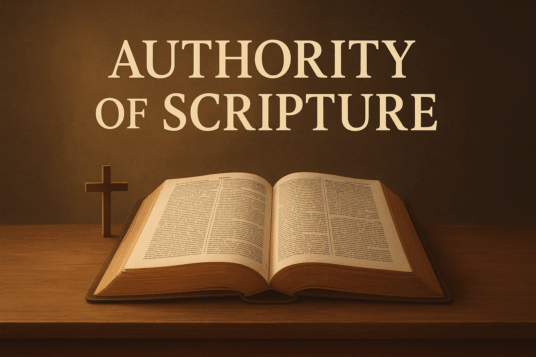The authority of Scripture is an inherent property directly connected to its divine inspiration. Because the Bible is the very Word of God written, its right to command what Christians should believe, do, and be flows directly from God himself. To believe or obey Scripture is to believe or obey God. This authority is not something granted by the church or recognized only through human consensus. As the Reformers argued, Scripture’s authority comes “as if God himself spoke from heaven.” The church acknowledges but does not create this authority.
The Holy Spirit plays a dual role in this authority: He inspired the Scriptures and now illuminates them, enabling believers to understand and live under their teaching. J. I. Packer put it succinctly: Christians must both “bow before the Word as the Spirit’s textbook” and “seek the Spirit as its interpreter.” Thus, biblical authority is not just an abstract claim but a lived reality—Scripture rules the life of God’s people through the Spirit’s work.
Because God is true, faithful, and just, His Word is likewise true, faithful, and just. Authoritative words impose obligations; they demand response. To say the Bible is authoritative is to confess that it governs all of life—belief, morality, history, identity, worship, and everyday decisions. Even when specific laws no longer directly apply, their underlying principles remain binding, because they flow from God’s eternal character. This is part of God’s loving “accommodation”: communicating infinite truth in finite human words adapted to our understanding without diminishing their authority.
At the same time, the authority of Scripture is best seen in its role as the witness to God’s mighty acts in history. The Bible is not merely a book of timeless principles. Christianity is built on novum—new, decisive events where God acted in history to change reality. The incarnation, the cross, and the resurrection must be true events, or else the gospel collapses. As Paul insists, “If Christ has not been raised, your faith is futile.” The biblical narrative gains authority because it points us to the God who really acted, and continues to act, in the world.
This means the Bible’s authority comes both from its origin (God’s inspired Word) and its content (God’s saving acts in history). Narrative theologians remind us that Scripture forms us by telling the story of God’s self-giving, liberating love. We know God by God’s actions. The overarching story gives coherence to the diversity of biblical voices, even when details differ. While the modern Western impulse is to demand factual precision in every account, Scripture’s authority is not diminished by diverse perspectives. Rather, the truth emerges through the witness of the whole.
Practically, the challenge lies not in Scripture’s authority but in human submission to it. Many resist the Word of God—either by dismissing it as irrelevant or by elevating personal experience over it. Yet the call of discipleship is clear: to bring every thought and action captive to Christ as revealed in Scripture. For some, this submission is a struggle, even within the church. But for those who accept its rule, Scripture becomes the foundation of worldview, identity, and decision-making.
In summary about the Authority of Scripture:
- Source: God himself, through the Spirit’s inspiration and illumination.
- Nature: Comprehensive, binding, trustworthy, and adapted to human understanding.
- Content: A witness to God’s decisive acts in history—especially in Jesus Christ.
- Function: Governs belief and practice, shapes imagination, calls for obedience, and gives hope.
The authority of Scripture is the voice of the living God through the written Word, calling his people to faith, obedience, and hope in Christ.
